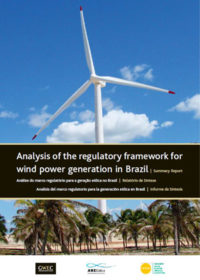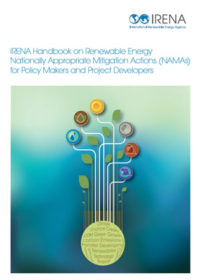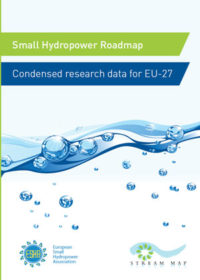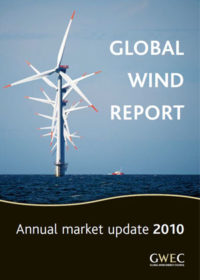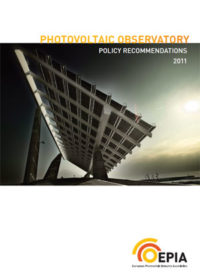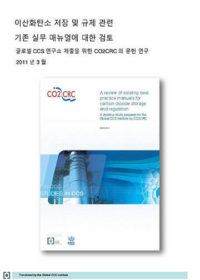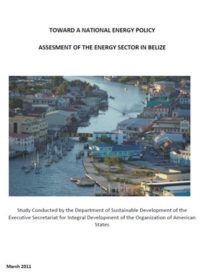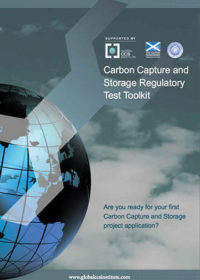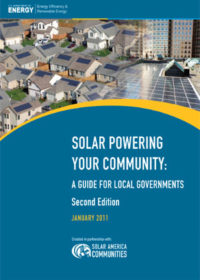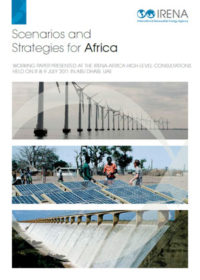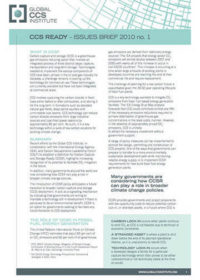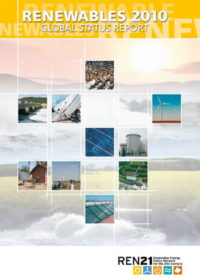Resources
Publications
Our publications, reports and research library hosts over 500 specialist reports and research papers on all topics associated with CCS.
View our Publication Library Disclaimer.
Filter by
Analysis of the regulatory framework for wind power generation in Brazil: summary report
1st January 2012
Topic(s): Domestic policy, Renewables, Wind energy
This study, which was undertaken in cooperation between the Brazilian Wind Energy Association (ABEEolica) and the Global Wind Energy Council (GWEC), provides an in-depth analysis of the Brazilian wind energy market. It evaluates the effects of the regulatory approaches to date, analyses the market and the industry, pinpoints remaining obstacles and challenges, and provides recommendations for legislative improvements.
This report is provided in English, Portuguese, and Spanish.
Disclaimer
The content within the Global CCS Institute Publications, Reports and Research Library is provided for information purposes only. We make every effort and take reasonable care to keep the content of this section up-to-date and error-free. However, we make no claim as to its accuracy, currency or reliability.
Content and material featured within this section of our website includes reports and research published by third parties. The content and material may include opinions and recommendations of third parties that do not reflect those held by the Global CCS Institute.
IRENA handbook on renewable energy nationally appropriate mitigation actions (NAMAs) for policy makers and project developers
1st January 2012
Topic(s): Domestic policy, Incentive mechanisms, Project financing, Renewables
This Handbook focuses on the role that Nationally Appropriate Mitigation Actions (NAMAs) can play in promoting renewable energy in developing countries. The concept of NAMAs was developed in the negotiations carried out under the United Nations Framework Convention on Climate Change (UNFCCC) to denote planned, voluntary greenhouse gas (GHG) mitigation actions in countries that do not have a legally binding emissions commitment. Notifying a NAMA thus practically means putting a UNFCCC-backed label on national development activities with mitigation effects. Renewable energy, being carbon dioxide-free, is a perfect candidate for a NAMA as it combines development benefits through the provision of energy with GHG reduction.
Disclaimer
The content within the Global CCS Institute Publications, Reports and Research Library is provided for information purposes only. We make every effort and take reasonable care to keep the content of this section up-to-date and error-free. However, we make no claim as to its accuracy, currency or reliability.
Content and material featured within this section of our website includes reports and research published by third parties. The content and material may include opinions and recommendations of third parties that do not reflect those held by the Global CCS Institute.
Small hydropower roadmap: condensed research data for EU-27
1st January 2012
Topic(s): Domestic policy, Economics, Hydroelectricity
This report provides decision makers with information about the energy sector in the 27 European Union member states. It lists the necessary prerequisites to exploit the full potential of small hydropower through refurbishment and new site development. The report documents the current status, issues and requirements of small hydropower in Europe. It will help decision makers to assess the situation in their country and unlock the potential of small hydropower.
Disclaimer
The content within the Global CCS Institute Publications, Reports and Research Library is provided for information purposes only. We make every effort and take reasonable care to keep the content of this section up-to-date and error-free. However, we make no claim as to its accuracy, currency or reliability.
Content and material featured within this section of our website includes reports and research published by third parties. The content and material may include opinions and recommendations of third parties that do not reflect those held by the Global CCS Institute.
Global wind report: annual market update 2010
1st April 2011
Topic(s): Domestic policy, Project financing, Wind energy
This is the sixth annual report on the status of the global wind industry by the Global Wind Energy Council. It provides a comprehensive snapshot of this global industry - present in 80 countries. The data and country profiles for this report have been collected through GWEC’s member associations and companies around the world, as well as from other analysts and government contacts.
Disclaimer
The content within the Global CCS Institute Publications, Reports and Research Library is provided for information purposes only. We make every effort and take reasonable care to keep the content of this section up-to-date and error-free. However, we make no claim as to its accuracy, currency or reliability.
Content and material featured within this section of our website includes reports and research published by third parties. The content and material may include opinions and recommendations of third parties that do not reflect those held by the Global CCS Institute.
Photovoltaic observatory: policy recommendations
1st March 2011
Topic(s): Domestic policy, Policy law and regulation, Renewables, Solar energy, Solar photovoltaics
The deployment of solar photovoltaic electricity (PV) is playing a crucial role in helping the EU meet its commitment in fighting climate change and ensure security of supply, reducing Europe’s dependency on energy imports.
In the context of the fast evolution of the European PV market in recent years, the need to permanently monitor market dynamics has led to the creation of the Photovoltaic Observatory. The Photovoltaic Observatory identifies recommended conditions for market development and best practices for the sustainable development of PV by basing its analysis on examining existing policies of several key countries. The Photovoltaic Observatory also focuses on relevant regulatory issues, financial incentives, administrative barriers and grid connection procedures.
Disclaimer
The content within the Global CCS Institute Publications, Reports and Research Library is provided for information purposes only. We make every effort and take reasonable care to keep the content of this section up-to-date and error-free. However, we make no claim as to its accuracy, currency or reliability.
Content and material featured within this section of our website includes reports and research published by third parties. The content and material may include opinions and recommendations of third parties that do not reflect those held by the Global CCS Institute.
이산화탄소 저장 및 규제 관련 기존 실무 매뉴얼에 대한 검토
1st March 2011
Topic(s): Carbon capture use and storage (CCUS), CO2 storage, Domestic policy, Policy law and regulation
2007년 이후, CO2 저장 관련 효율적 실행 방안, 가이드라인, 표준 등을 포함하는 다수의 출판물이 발간되었다. 이 출판물들은 특정 주제를 다룬 매뉴얼부터 수송을 비롯한 전반적인 CCS 과정까지 광범위하게 다루고 있다. 이들이 다루는 세부 내용의 수준도 천차만별로, 각 개념의 개관을 제공하는 출판물, 매우 세부적인 논의 내용을 다루거나 실제 수행된 프로젝트의 기술적 운영, 계산, 지질학적 한계 등이 포함된 출판물도 있다. 결국, CO2 저장과 관련한 수많은 문제와 그 실행 방안에 대한 광범위한 데이터베이스는 현재 존재한다고 할 수 있다.
아래에는 출간된 매뉴얼과 가이드라인에 대한 간략한 개요, 이미 발표되어 출판 단계에 있는 자료의 목록 및 최신 매뉴얼로 대체되거나 제한된 범위와 제공 방식에도 불구하고 중요한 것으로 평가되는 일부 기타 자료를 수록하였다. 또한, 출판된 매뉴얼과 가이드라인은 해당 주제와 제공 정보의 수준을 (대략적으로) 알아볼 수 있도록 표로 나타내었다.
Disclaimer
The content within the Global CCS Institute Publications, Reports and Research Library is provided for information purposes only. We make every effort and take reasonable care to keep the content of this section up-to-date and error-free. However, we make no claim as to its accuracy, currency or reliability.
Content and material featured within this section of our website includes reports and research published by third parties. The content and material may include opinions and recommendations of third parties that do not reflect those held by the Global CCS Institute.
Toward a national energy policy: assessment of the energy sector in Belize
1st March 2011
Topic(s): Domestic policy, Energy security, Policy law and regulation
This report describes an in-depth study conducted by the Department of Sustainable Development of the Executive Secretariat for Integral Development of the Organization of American States, on the energy sector in Belize.
The study provides a baseline analysis of Belize’s energy sector. It outlines a preliminary draft of Belize’s energy policy, including priority areas, broad goals and specific objectives for the development of the energy sector linked to security of supplies, environmental protection and competitiveness.
Disclaimer
The content within the Global CCS Institute Publications, Reports and Research Library is provided for information purposes only. We make every effort and take reasonable care to keep the content of this section up-to-date and error-free. However, we make no claim as to its accuracy, currency or reliability.
Content and material featured within this section of our website includes reports and research published by third parties. The content and material may include opinions and recommendations of third parties that do not reflect those held by the Global CCS Institute.
Carbon capture and storage regulatory test toolkit
11th February 2011
Topic(s): Carbon capture use and storage (CCUS), Domestic policy, Policy law and regulation
Large point sources of carbon dioxide are responsible for a significant proportion of the world’s greenhouse gas emissions – with fossil fuel power stations and other large-scale industrial activities responsible for around half of the total. Carbon capture and storage (CCS) is expected to make a major contribution to reducing these emissions.
Few CCS projects currently exist in the world – and a lack of experience in regulatory agencies and commercial entities of how regulatory systems would apply to such projects increases risk – potentially leading to delays and increased costs for emerging CCS projects.
This toolkit has been produced by Scottish Carbon Capture and Storage (SCCS) researchers on behalf of the Scottish Government and sponsored by the Global CCS Institute. It guides users through a regulatory test exercise, which provides a low-cost, low-risk approach to testing regional and national legislation and regulatory systems for CCS projects, and gaining the benefits in follow-up activities.
The toolkit recommends use of a real or simulated CCS project as part of this exercise to assist government agencies and other stakeholders to work together to test and improve understanding of regulatory systems. It explains how a simulated or real CCS project can be taken through the regulatory process from inception to decommissioning – a test of the regulatory process at much lower cost, time and risk than would be incurred under a real project application.
Implementing this toolkit will assist users to:
- improve understanding of their local regulatory process
- the permits and consents necessary for a CCS project
- the information required
- the likely timescales for planning and approval
- the organisations that need to be involved
- identify gaps, contradictions, and potential revisions to regulatory systems
- ensure a viable regulatory process is in place for potential CCS projects
- help to speed up the management of projects to meet demanding timescales for funding; and
- raise awareness amongst the key stakeholders of their role in the regulatory process
The test exercise seeks to be realistic and to maximise learning opportunities, by involving the actual organisations and people that would be involved in effective handling of a CCS project. The exercise should be led by a government body with the intensive involvement of relevant regulatory agencies. Other stakeholders to involve will include commercial organisations, NGOs, and advisory bodies in the context of regional, national, or cross-jurisdictional project planning.
By working together towards a common vision, and ensuring strong participation and input by key stakeholders, this toolkit will assist users to run a successful regulatory test exercise, identify follow-up actions, and gain the benefits sought.
This exercise will inform government policy and developing CCS regulatory frameworks. Additionally, it should reduce the regulatory risk to CCS project developers – accelerating the consenting process and reducing the burden to all participants involved in that process – as well as ensuring an appropriate balance with other policy objectives.
Disclaimer
The content within the Global CCS Institute Publications, Reports and Research Library is provided for information purposes only. We make every effort and take reasonable care to keep the content of this section up-to-date and error-free. However, we make no claim as to its accuracy, currency or reliability.
Content and material featured within this section of our website includes reports and research published by third parties. The content and material may include opinions and recommendations of third parties that do not reflect those held by the Global CCS Institute.
Solar powering your community: a guide for local governments
1st January 2011
Topic(s): Domestic policy, Policy law and regulation, Public engagement, Renewables, Solar energy
This guide can help stimulate ideas or provide a framework for a comprehensive solar plan for a community. Each section is divided into topic areas - typically within the jurisdiction of local governments - that are integral in creating and supporting local solar markets. Each topic area includes:
- An introduction that describes the policy or program and states its purpose
- Information on benefits of implementing the policy or program
- Tips and options for designing and implementing the policy or program
- Examples that highlight experiences from communities that have successfully implemented the policy or program; and additional reports, references, and tools that can offer more information on the topic.
DOE recognizes that there is no one path to solar market development, so this guide introduces a range of policy and program options that can help a community build a sustainable solar infrastructure.
This second edition of the guide was updated to include new market developments and innovations for advancing local solar markets that have emerged since the first edition was released in 2009.
Disclaimer
The content within the Global CCS Institute Publications, Reports and Research Library is provided for information purposes only. We make every effort and take reasonable care to keep the content of this section up-to-date and error-free. However, we make no claim as to its accuracy, currency or reliability.
Content and material featured within this section of our website includes reports and research published by third parties. The content and material may include opinions and recommendations of third parties that do not reflect those held by the Global CCS Institute.
Scenarios and strategies for Africa: working paper presented at the IRENA-Africa high-level consultations held on 8 & 9 July 2011 in Abu Dhabi, UAE
1st January 2011
Topic(s): Domestic policy, Renewables
This working paper outlines the current state of knowledge that will serve as a basis for the 'Scenarios and Strategies for Africa' project. The goal of this project is to prepare in-depth analysis and use models and scenarios to support and feed into national renewables readiness assessments. The project will focus on innovation and technology issues for 2035, with an outlook to 2050. Key questions are addressed in individual chapters.
Disclaimer
The content within the Global CCS Institute Publications, Reports and Research Library is provided for information purposes only. We make every effort and take reasonable care to keep the content of this section up-to-date and error-free. However, we make no claim as to its accuracy, currency or reliability.
Content and material featured within this section of our website includes reports and research published by third parties. The content and material may include opinions and recommendations of third parties that do not reflect those held by the Global CCS Institute.
CCS ready: issues brief 2010 no. 1
3rd November 2010
Topic(s): Carbon capture use and storage (CCUS), Domestic policy, Policy law and regulation
A new paper defines and explains the intricacies around carbon capture and storage ready (CCS Ready) policy, which helps governments prepare power generators for a shift to a low carbon economy and signals future costs to investors.
The paper highlights growing recognition of CCS as an important CO2 mitigation tool. Some 20 per cent of the world’s greenhouse gas emissions can be achieved via the technology, according to the International Energy Agency (IEA).
The paper says that CCS Ready policy needs to be rigorous enough to ensure that retrofit takes place while also being also being open enough to future capture technology advances. Early stage planning for storage is also an important step that underpins what it really means to be CCS Ready, it adds.
Disclaimer
The content within the Global CCS Institute Publications, Reports and Research Library is provided for information purposes only. We make every effort and take reasonable care to keep the content of this section up-to-date and error-free. However, we make no claim as to its accuracy, currency or reliability.
Content and material featured within this section of our website includes reports and research published by third parties. The content and material may include opinions and recommendations of third parties that do not reflect those held by the Global CCS Institute.
Renewables 2010 global status report
1st September 2010
Topic(s): Domestic policy, Economics, Geothermal energy, Global Status Report, Hydroelectricity, Marine energy, Policy law and regulation, Renewables, Solar energy, Wind energy
Changes in renewable energy markets, investments, industries, and policies have been so rapid in recent years that perceptions of the status of renewable energy can lag years behind the reality. This report captures that reality and provides a unique overview of renewable energy worldwide as of early 2010. The report covers both current status and key trends. By design, the report does not provide analysis, discuss current issues, or forecast the future.
Disclaimer
The content within the Global CCS Institute Publications, Reports and Research Library is provided for information purposes only. We make every effort and take reasonable care to keep the content of this section up-to-date and error-free. However, we make no claim as to its accuracy, currency or reliability.
Content and material featured within this section of our website includes reports and research published by third parties. The content and material may include opinions and recommendations of third parties that do not reflect those held by the Global CCS Institute.
